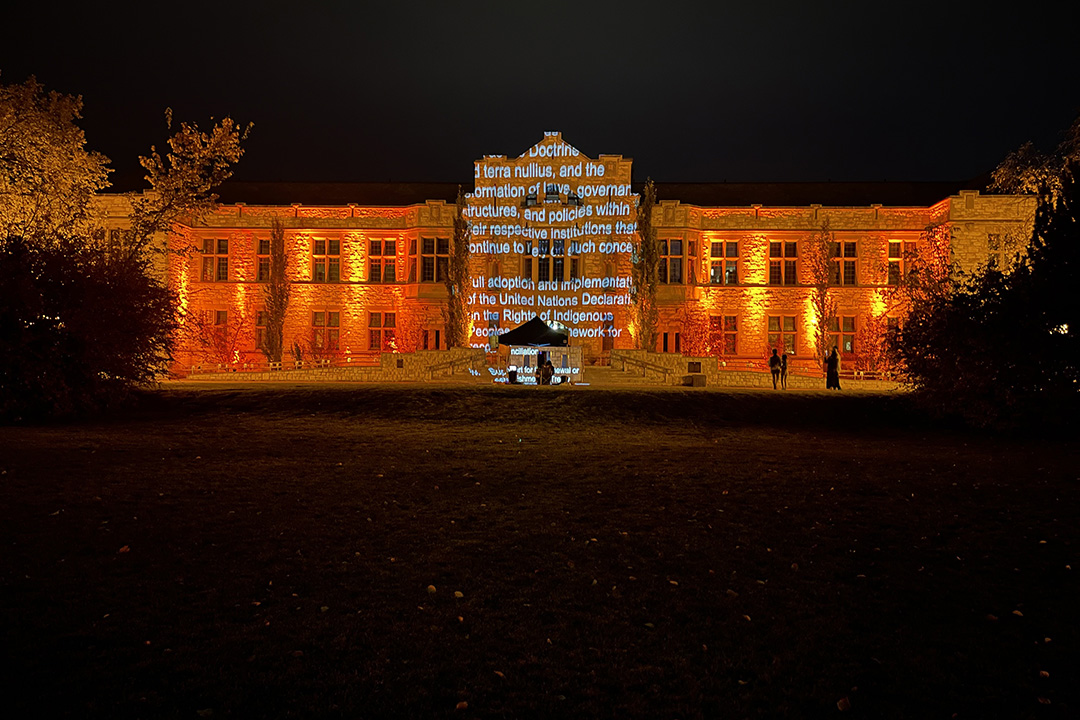
President’s statement on the National Day for Truth and Reconciliation
USask events organized throughout this week have given us the opportunity to acknowledge and reflect on the tragic legacy and history of the residential school system, reminding us of our responsibility to be national leaders in transformative decolonization leading to reconciliation.
We pay tribute to the survivors, their families and their communities by being responsive to the TRC’s Calls to Action. That is a commitment woven throughout our University Plan 2025 and embedded in our new Indigenous Strategy — ohpahotân | oohpaahotaan (“Let’s Fly Up Together”) — which was generously gifted to the university by Indigenous leaders, Elders, and Traditional Knowledge Keepers and Teachers, as well as Indigenous students, staff and faculty.
Establishing a new federal statutory day to recognize the tragic legacy of residential schools was one of the 94 Calls to Action of the Truth and Reconciliation Commission of Canada. It is with solemn reflection that tomorrow, we mark the first National Day for Truth and Reconciliation at USask. It is appropriately held in conjunction with Orange Shirt Day to remember Indigenous children who were forced to leave their families to attend residential schools.
All faculty, students, staff and alumni, and all members of our extended campus community, are encouraged to take this day to learn and to listen. It is a day to remember the victims and the survivors, and to reflect on the trauma caused by residential schools and how we can move forward to heal together. But commemoration and contemplation must be accompanied by action and interaction. We have a responsibility to educate Canadians about the tragic truth of our collective history, and to meaningfully engage with Indigenous communities. We pledge to continue working together with Indigenous communities and businesses on how best to mark the occasion with respect, and how best to connect.
This first National Day for Truth and Reconciliation is another step forward on the path to being the best place we can be for Indigenous students, staff, and faculty, and their families and communities. It is also part of our critical ongoing effort to make USask a more diverse, equitable and inclusive campus community for all. We are committed to doing all that we can to remove barriers, and to dismantle structural forms of discrimination on our campuses.
Our university community is committed to leading positive change with and for Indigenous peoples. Today we re-commit, and acknowledge that we must:
- Do more to support, to encourage, and to promote Indigenous scholarship and ways of knowing;
- Do more to take meaningful and respectful action to advance Indigenization, and to support transformative decolonization, on the road to reconciliation; and
- Do more to take concrete action to turn the TRC’s Calls to Action into interactions that make a difference, on our campuses and in our communities.
September 30 is a day dedicated to Truth and Reconciliation and is a permanent reminder that we must reflect on the past in order to shape a better future.
I am reminded of the words of the Honourable Justice Murray Sinclair, the chief commissioner of the Truth and Reconciliation Commission of Canada: “The road we travel is equal in importance to the destination we seek. There are no shortcuts. When it comes to Truth and Reconciliation, we are forced to go the distance.”
With our Vision, Mission and Values, our UPlan 2025 and our new Indigenous Strategy we have a roadmap to reconciliation, a new path to follow on our shared journey together, and it is up to each of us to take the next steps.
Peter Stoicheff
President and vice-chancellor
University of Saskatchewan

